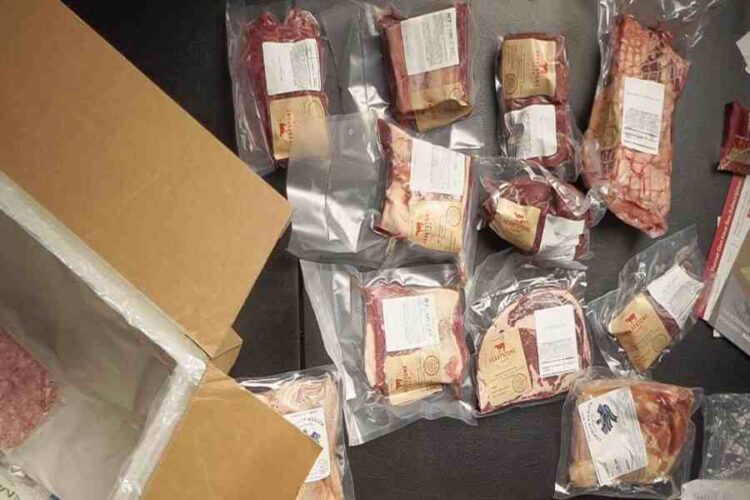In a move that has ignited fierce debate and drawn national attention, Florida Governor Ron DeSantis has signed into law a groundbreaking bill banning the sale of lab-grown meat within the state. The legislation, which marks a significant departure from traditional agricultural practices, has been met with both praise and criticism, with supporters hailing it as a victory for the state’s farming community, while detractors decry it as a thinly veiled attempt to stifle innovation and cater to special interests.
At the heart of the controversy lies Governor DeSantis’s assertion that the ban is necessary to protect Florida’s agricultural industry from what he perceives as a looming threat posed by lab-grown meat. In a statement released following the signing of the bill, DeSantis framed the issue as a matter of defending the state’s farmers against the encroachment of what he termed “elites” and their agenda to promote alternative forms of meat production.
“Today, Florida is fighting back against the global elite’s plan to force the world to eat meat grown in a petri dish or bugs to achieve their authoritarian goals,” DeSantis declared, echoing sentiments that have resonated with his political base. The governor’s rhetoric, however, has drawn sharp criticism from opponents, who argue that the ban is rooted more in political posturing than genuine concern for the welfare of Florida’s farmers.
Indeed, the timing of the ban has raised eyebrows, coming at a time when the lab-grown meat industry is still in its infancy and poses little immediate threat to traditional agriculture. Unlike meat alternatives made from plant-based ingredients, cultivated meat is produced using animal cells grown in a laboratory setting. While the technology holds promise as a more sustainable alternative to conventional meat production methods, it has yet to gain widespread acceptance among consumers.
Lab-grown meat remains largely unavailable to the average consumer, with only a handful of companies receiving approval from regulatory agencies to bring their products to market. Despite this, Governor DeSantis’s decision to enact a statewide ban on lab-grown meat sends a clear signal that Florida is not willing to embrace this emerging technology without a fight.
Critics of the ban argue that it is motivated more by politics than science, pointing to DeSantis’s close ties to the state’s powerful agricultural lobby as evidence of ulterior motives. They contend that the ban serves as a thinly veiled attempt to protect the interests of traditional meat producers at the expense of innovation and consumer choice.
Moreover, the ban has sparked speculation about the influence of conspiracy theories on the governor’s decision-making process. In particular, DeSantis’s references to the “global elite” and their purported agenda to promote lab-grown meat and insects have raised eyebrows among observers, who see echoes of fringe conspiracy theories that have gained traction in certain political circles.
The so-called “Great Reset,” a conspiracy theory that emerged in the wake of the COVID-19 pandemic, has been cited by some as a possible inspiration for DeSantis’s rhetoric. Originating from a World Economic Forum initiative advocating for sustainable development, the theory has been co-opted by right-wing commentators, who have used it to promote fear and distrust of global institutions.
However, despite the governor’s attempts to frame the ban as a response to a perceived threat from the “global elite,” the reality is far more nuanced. Lab-grown meat, while still in its early stages of development, holds the potential to revolutionize the way we produce and consume food, offering a more sustainable and ethical alternative to conventional meat production methods.
Indeed, proponents of lab-grown meat argue that it could help address some of the most pressing challenges facing the global food system, including climate change, animal welfare, and food security. By producing meat in a laboratory setting, without the need for raising and slaughtering animals, cultivated meat has the potential to significantly reduce greenhouse gas emissions, conserve water and land resources, and alleviate the suffering of billions of animals raised for food each year.
Furthermore, lab-grown meat has the potential to disrupt traditional agricultural practices, which are often characterized by environmental degradation, animal cruelty, and unsustainable use of resources. By shifting towards more sustainable and ethical forms of meat production, we can create a food system that is more resilient, equitable, and environmentally sustainable.
In light of these considerations, the decision to ban lab-grown meat in Florida raises important questions about the role of government in shaping the future of food production. While there is certainly a need to protect the interests of traditional farmers and ensure the integrity of the food supply, it is equally important to foster innovation and encourage the development of more sustainable and ethical alternatives.
Ultimately, the debate over lab-grown meat is about more than just meat—it’s about the kind of future we want to create for ourselves and future generations. By embracing innovation, promoting sustainability, and challenging entrenched interests, we can build a food system that is healthier, more ethical, and more resilient in the face of global challenges.
As Florida takes the lead in enacting a ban on lab-grown meat, the rest of the nation will be watching closely to see how this bold experiment unfolds. Will it be remembered as a victory for traditional agriculture, or as a missed opportunity to embrace the promise of a more sustainable and ethical food future? Only time will tell.










